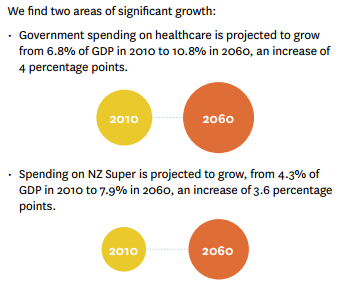This blur of bureaucratic words does not seem to include a denial that the officials proposed to watch the at-risk kids and not intervene even if they were abused. It is hard to believe that any official would ever contemplate such a thing.
Here is the excerpt the DomPost released.
There was nothing in statement 40 to indicate no intervention was proposed. So I requested the paper. I needn't have bothered. MSD has just released on their website.
Here is a prior paragraph.
The predictive modelling (PM) score (calculated using various factors like older siblings having had contact with CYF) would identify a small group whose outcomes and service contacts would be observed. How far from "not intervene even if they were abused" is that?
Additionally
The vulnerable group would be experiencing far greater oversight than under the usual scheme of things.
And further
That is what the Minister is outraged by. A child could be officially 'flagged' as at high-risk of maltreatment but nothing proactive is done about it. At least not during the study period.
Isn't that pretty much what happens now? Children are unofficially identified or recognised by health maternity nurses, Plunket, district nurses, family, GPs as high risk but there is no referral or report to CYF until something actually happens.
The DomPost take on this issue is a disgraceful beat-up. Reminder of what they wrote Thursday
documents show officials had sought ethical approval for one study which involved risk-rating a group of newborns and not intervening in high-risk cases, to check whether their predictions came true.
And reminder of what Tolley now plans
Tolley also appeared to signal a major backdown on a proposed population-wide application of the model, saying it was "unlikely" to be used on children that had not already been notified to Child Youth and Family (CYF).
There is no need for a population-wide application. But the plan was to identify only those who were at the greatest risk. Tolley won't agree to progressing this (despite agreement from other groups involved in the whole exercise for much longer).

















